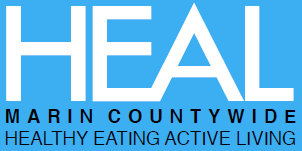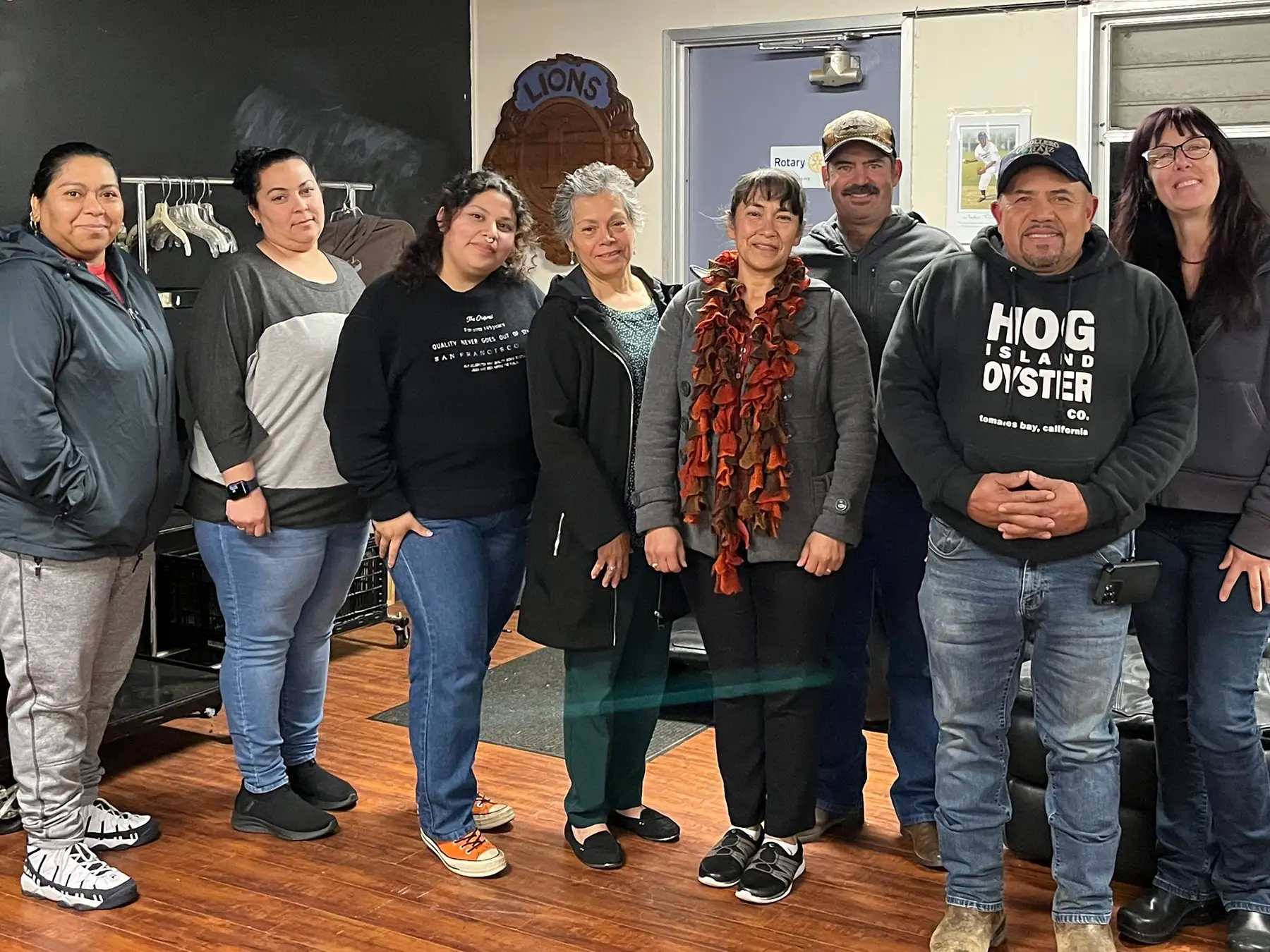Canal Community Action Team: Co-Led by Alcohol Justice
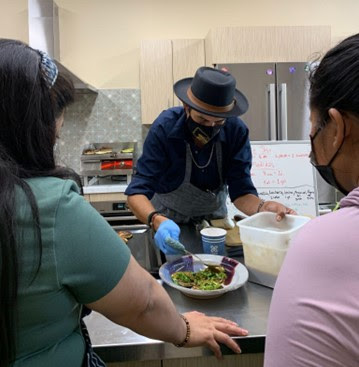
The Canal CAT team was composed of five partner organizations that served the residents and demographic of the Canal area. Representatives from these recruited organizations partook in monthly meetings to refine upcoming needs as community engagement efforts unfolded.
In addition to Alcohol Justice, this Action Team included representatives from Community Action Marin, Indigenous Healing Center, Parent Services Project, and Solidaridad Guatemalteca.
As a result, the following recommendations were adopted into agreement to present to the community through several methods of outreach:
- Leverage expertise of those in the restaurant industry and community gardens to
support a public market with a commercial kitchen and food trucks. - Promote edible urban greening in the Canal and identify underutilized land for community gardens to grow organic produce.
- Support an educational campaign around decolonizing foodways with local community leaders to increase fruit and vegetable consumption.
Through an outreach and engagement campaign, Alcohol Justice successfully reached 1,500 community members for their feedback on the community food system recommendations.
Alcohol Justice collected contact information from community members by canvassing at key locations in the Canal District to conduct their surveys. These locations included food distribution centers, bus stations, clinic waiting rooms, and outdoor social hubs.
In addition to canvassing throughout the community, Alcohol Justice also hosted Monthly Minga’s, where residents would gather for community clean up.
In the fall of 2022, Alcohol Justice hosted their ‘Platica’-“Town Hall” inviting the community to discuss their questions, concerns, and ideas on the identified priorities. Community members shared testimonies of the impact of diet changes for prevention of chronic illnesses and voted against or in favor of the food system recommendations. Through their final wave of outreach, 80 community members attended the platica, all of whom voted in support of the recommendations.
This outreach was especially successful due to the training provided to youth and adult volunteers. These trainings further developed the leadership skills of community leaders and supported the community engagement process by raising the level of public engagement. In addition to attending in person community activities, volunteers also supported with phone banking.
To learn more about the work of Alcohol Justice, contact David Thompson, Youth for Justice Director at davidt@alcoholjustice.org.
Marin City Community Action Team
Co-led by Marin County Cooperation Team (MCCT)
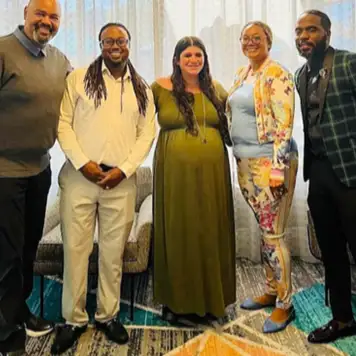
As noted in the Marin City CAT tagline, “Unity is the Foundation of Community”
From May 2022 – February 2023, MCCT held 8 meetings with key Marin City stakeholders and thought leaders, including members of MCCT’s staff who are lifelong Marin City residents, First Missionary Baptist Church, St. Andrew Presbyterian Church, Sausalito Marin City School District, Marin City Community Development Corporation, and Marin City Community Services District.
Through these meetings, the Marin City CAT agreed to 3 food system priorities to bring to Marin City residents for their feedback:
- Community Gardens – revitalizing existing gardens/creating a community garden collective (including workforce training).
- Supporting Home Cooks and other food retailers in selling food for profit (i.e., commercial kitchen/storage space access & workforce training).
- Obtaining and training Youth Health Educators to promote health, wealth, and economic entrepreneurship development.
MCCT’s community engagement process on the 3 priorities was extensive. The community engagement results show that the Marin City community is overwhelmingly in favor of the three food system priorities above. MCCT surveyed 173 Marin City residents. Of those surveyed, 99.4% supported food system priority number 1 (Community Garden Collective), 97.7% supported food system priority number 2 (Supporting home cooks/other food retailers in selling food for profit), and 97.7% supported food system priority number 3 (Obtaining and training Youth Health Educators). MCCT also reached 204 Marin City residents in-person (including workshops), 1,765 Marin City residents through print outreach, four Marin City residents via MCCT’s “website suggestion box,” and 2,208 social media accounts via social media posts, stories, and reels via Instagram and Facebook.
Anecdotally, community members made comments such as:
“We need this in our community,”
“It’s a wonderful plan, can’t wait to see it in action!”
“Fantastic ideas let’s put this in motion.”
To learn more about the work of Marin County Cooperation Team, contact Jahmeer Reynolds, Founder and Executive Director at jahmeerreynolds@marincountycooperationteam.org.
West Marin Community Action Team
Co-led by West Marin Community Services and San Geronimo Valley Community Center
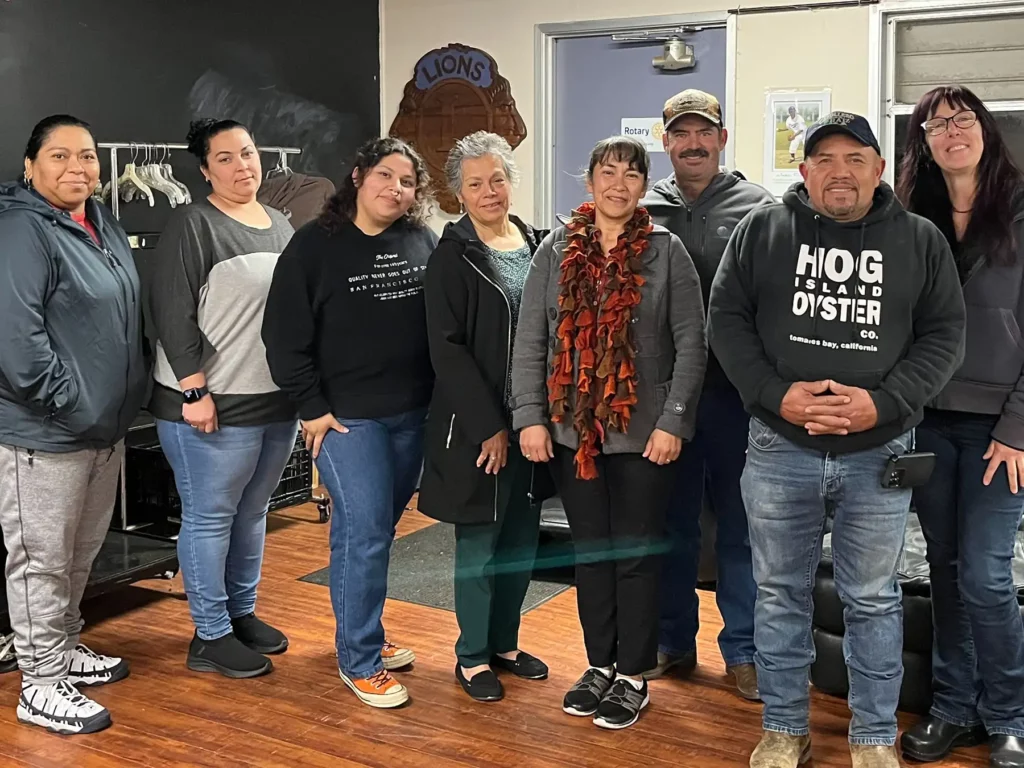
Through their shared leadership approach, West Marin Community Services (WMCS) and San Geronimo Valley Community Center (SGVCC) worked closely to identify strategies to best engage the various communities of West Marin. In summary, a total of 210 community members were surveyed in the region of west Marin, with responses coming in from over 10 towns, and in person surveying conducted in Inverness, Nicassio, Point Reyes, San Geronimo, and Tomales.
This outreach included surveying through targeted focus groups led by the CAT, and existing key programming of both organizations, such as the food pantries hosted through WMCS and SGVCC.
Along with being co-led by leadership staff from both organizations, the West Marin Community Action Team’s current membership is composed of six Spanish speaking residents who have connections to the food service industry and agricultural sectors. This unique approach was utilized to further elevate the voices and expertise of the marginalized communities that the CAT team represents. These community leaders have received a stipend in exchange for their time, for sharing their feedback on the suggested priorities, and for supporting community engagement efforts.
Through five Community action team meetings and various discussions held with selected community leaders, the following priorities were identified:
- Access to community gardens to grow fresh fruits and vegetables.
- Establishing land trusts for agricultural workers and other community members to own land to grow and procure food.
- Create a water catchment system to support people in growing their own food, even in drought conditions.
Additionally, feedback gathered through in person surveying identified support for existing community gardens and school gardens, as well as support for potential sites where new gardens could be built, envisioning the use of faith lands to support community needs, and exploring food sharing models that could be successful in the West Marin region. The community action team members also highlighted limitations around water quality and source, local microclimates, and cultural barriers to consider ensuring that the recommendations are feasible.
The results of the HEAL CAT work have aligned with other projects at West Marin Community services and San Geronimo Valley Community Center, strengthening the desire to continue providing opportunities for the community to exchange knowledge and resources on food. Moving forward, they will continue supporting immediate community needs by providing direct services that increase access to healthy foods, with programming and efforts centered on Healthy Eating Active Living opportunities for the entire community, particularly focused on youth, older adults, and Spanish speaking resi
To learn more about the work of WMCS and SGVCC contact Socorro Romo at sromo@westmarincommunityservices.org or Alexa Davidson at adavidson@sgvcc.org
San Geronimo Valley Community Center was an essential partner in the work of the West Marin Community Action Team, led under the leadership of Dave Court. Dave has retired after 32 years and built the Center into what it is today. The new Executive Director is Alexa Davidson who grew up in Lagunitas and has been with the Center for the past five and a half years.
MarinHEAL Equitable Food System Priorities
Canal Community
- Promote edible urban greening in the canal and identify underutilized land for community gardens to grow organic produce.
- Leverage expertise of those in the restaurant industry and community gardens to support a public market with a commercial kitchen and food trucks.
- Support an educational campaign around decolonizing food ways with local community leaders to increase fruit and vegetable consumption.
Marin City Community
- Community Gardens – revitalizing existing gardens and creating a community garden collective, including workforce training.
- Supporting Home Cooks and other food retailers in selling food for profit such as access to commercial kitchens, storage space, and workforce training.
- Obtaining and training Youth Health Educators to promote health, wealth, and economic entrepreneurship development.
West Marin Community
- Access to community gardens to grow fresh fruits and vegetables.
- Establishing land trusts for agricultural workers and other community members to own land to grow and procure food.
- Create a water catchment system to support people in growing their own food, even in drought conditions.
